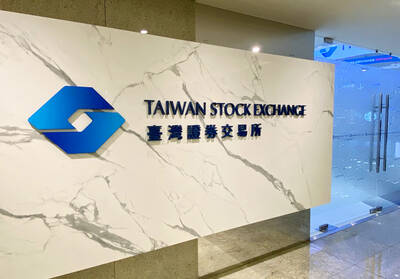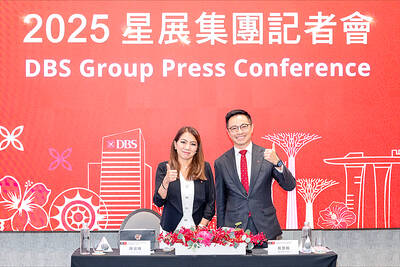The chairman of the world’s largest contract chipmaker has become a billionaire thanks to expected demand for Apple Inc’s new iPhone.
Taiwan Semiconductor Manufacturing Co (TSMC, 台積電) shares have surged 25 percent in the past year, lifting TSMC founder and chairman Morris Chang’s (張忠謀) personal fortune to US$1 billion, according to the Bloomberg Billionaires Index.
Chang, 86, owns 0.5 percent of the business directly and through his family, according to a May filing to the Taiwan Stock Exchange.
The climbing valuation is being fueled by optimism about a revenue boost from the upcoming iPhone release, as well as long-term expectations that cars, high-performance computing and the Internet of Things will be new growth drivers for its processors, according to Randy Abrams, a Taipei-based equity analyst at Credit Suisse Group AG.
TSMC spokeswoman Elizabeth Sun (孫又文) declined to comment on Chang’s net worth.
TSMC has a market cap of almost US$180 billion, making it the most valuable company on the Taiwanese stock exchange. Hon Hai Precision Industry Co (鴻海), the listed flagship of iPhone assembler Foxconn Technology Group (富士康科技集團), is the second-most valuable company on the exchange has risen 56 percent in the past year to US$67.6 billion.
The Taiwan Taiex Electronics Index, a measure of the market’s technology stocks, is up 22 percent in the same period.
Chang founded TSMC in 1987 with backing from the Taiwanese government, which remains the company’s largest shareholder through the National Development Fund’s 6.4 percent stake.
The Massachusetts Institute of Technology and Stanford University graduate spent the majority of his career working for Texas Instruments Inc. He established TSMC when he was in his mid-50 and became the first to build a semiconductor factory that made chips based on the designs of its customers.
Chang stepped down as chief executive officer in 2005 only to return when TSMC’s business stagnated, serving another stint as CEO between 2009 and 2013.

Taiwan Semiconductor Manufacturing Co (TSMC, 台積電) secured a record 70.2 percent share of the global foundry business in the second quarter, up from 67.6 percent the previous quarter, and continued widening its lead over second-placed Samsung Electronics Co, TrendForce Corp (集邦科技) said on Monday. TSMC posted US$30.24 billion in sales in the April-to-June period, up 18.5 percent from the previous quarter, driven by major smartphone customers entering their ramp-up cycle and robust demand for artificial intelligence chips, laptops and PCs, which boosted wafer shipments and average selling prices, TrendForce said in a report. Samsung’s sales also grew in the second quarter, up

LIMITED IMPACT: Investor confidence was likely sustained by its relatively small exposure to the Chinese market, as only less advanced chips are made in Nanjing Taiwan Semiconductor Manufacturing Co (TSMC, 台積電) saw its stock price close steady yesterday in a sign that the loss of the validated end user (VEU) status for its Nanjing, China, fab should have a mild impact on the world’s biggest contract chipmaker financially and technologically. Media reports about the waiver loss sent TSMC down 1.29 percent during the early trading session yesterday, but the stock soon regained strength and ended at NT$1,160, unchanged from Tuesday. Investors’ confidence in TSMC was likely built on its relatively small exposure to the Chinese market, as Chinese customers contributed about 9 percent to TSMC’s revenue last

Taiwan and Japan will kick off a series of cross border listings of exchange-traded funds (ETFs) this month, a milestone for the internationalization of the local ETF market, the Taiwan Stock Exchange (TWSE) said Wednesday. In a statement, the TWSE said the cross border ETF listings between Taiwan and Japan are expected to boost the local capital market’s visibility internationally and serve as a key for Taiwan becoming an asset management hub in the region. An ETF, a pooled investment security that is traded like an individual stock, can be tracked from the price of a single stock to a large and

Despite global geopolitical uncertainties and macroeconomic volatility, DBS Bank Taiwan (星展台灣) yesterday reported that its first-half revenue rose 10 percent year-on-year to a record NT$16.5 billion (US$537.8 million), while net profit surged 65 percent to an unprecedented NT$4.4 billion. The nation’s largest foreign bank made the announcement on the second anniversary of its integration with Citibank Taiwan Ltd’s (花旗台灣) consumer banking business. “Taiwan is a key market for DBS. Over the years, we have consistently demonstrated our commitment to deepening our presence in Taiwan, not only via continued investment to support franchise growth, but also through a series of bolt-on acquisitions,” DBS